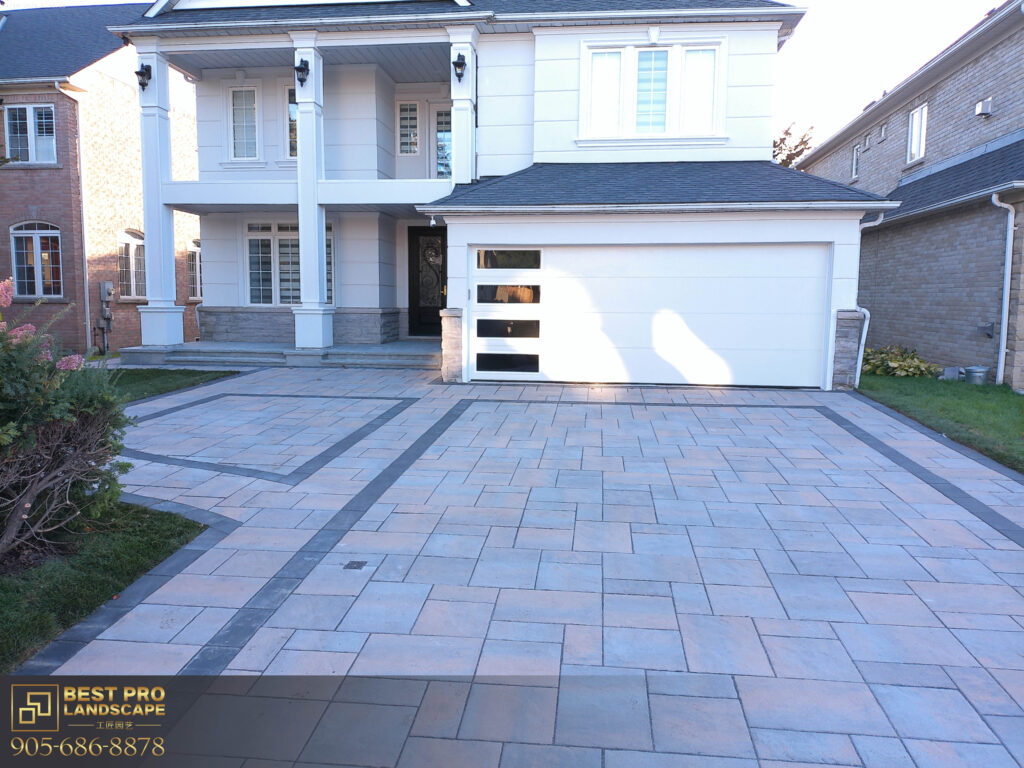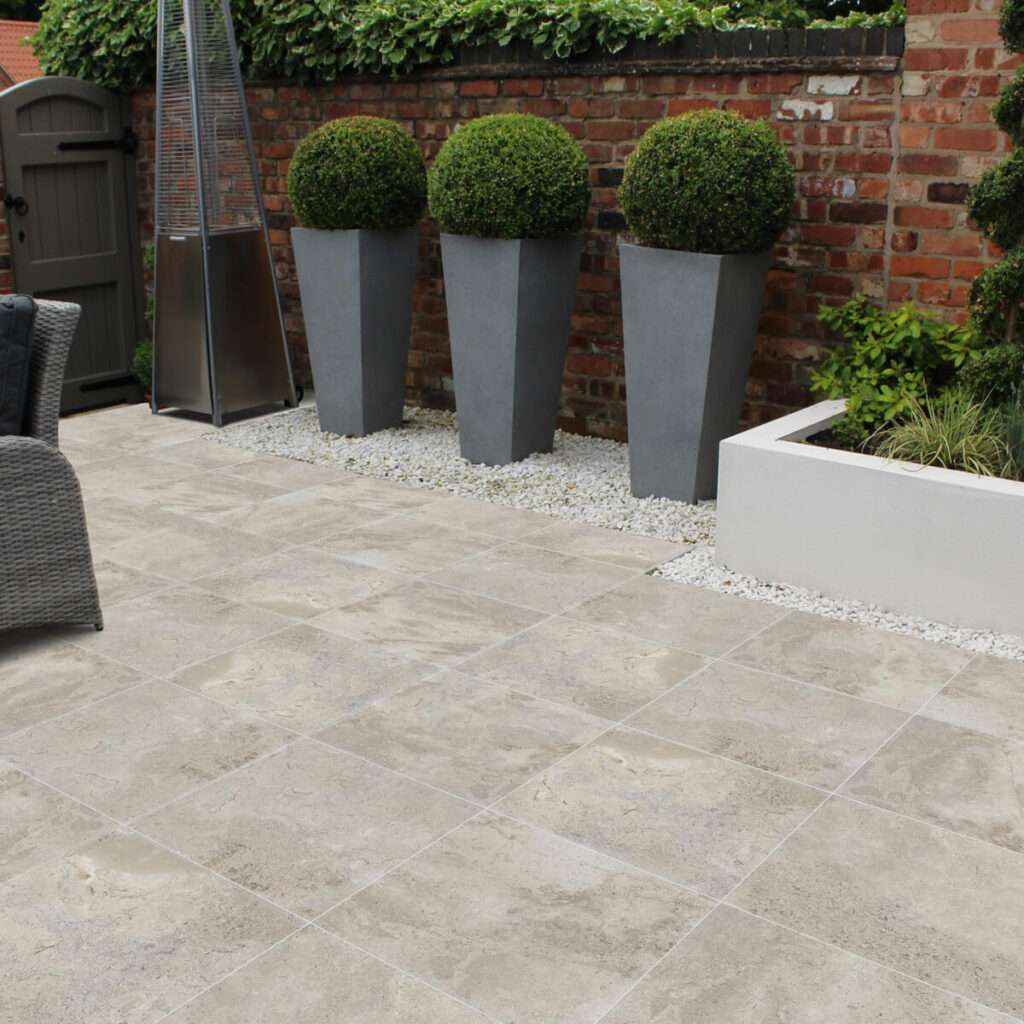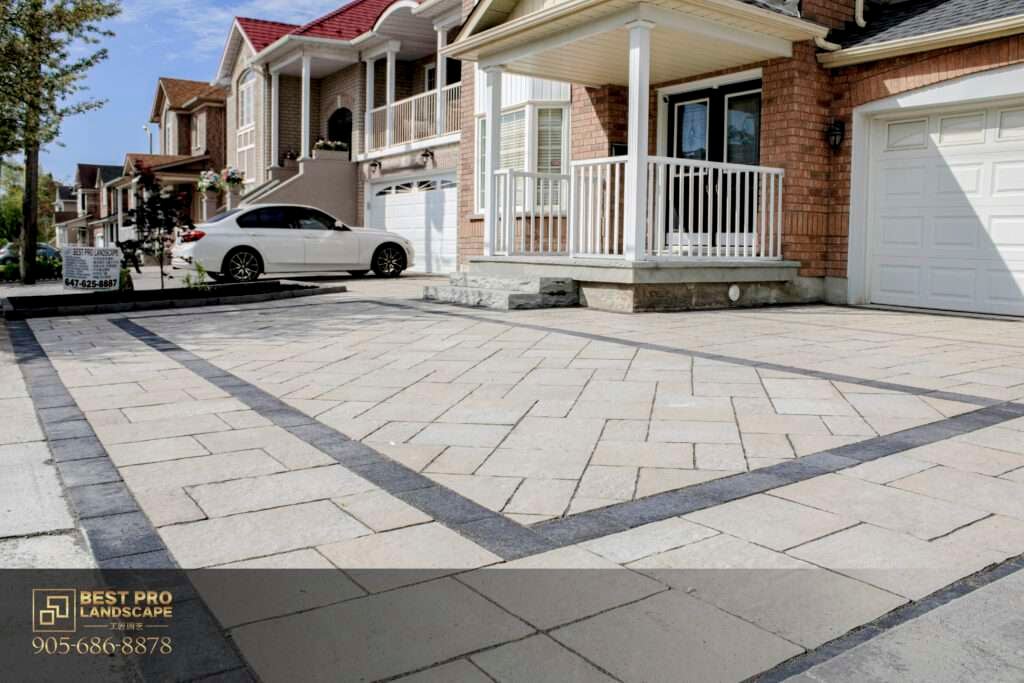Types of Pavers – Complete Guide
What Are Pavers?
Pavers are individual paving stones used to create outdoor surfaces such as driveways, patios, walkways, and pool decks. They come in concrete, brick, natural stone, porcelain, permeable, and rubber varieties, each offering different looks, strengths, and maintenance needs.
Main Types of Pavers

1.Natural Stone Pavers – Best for Luxury and Unique Looks
Options: Limestone, flagstone, bluestone, marble, travertine.
Uses: Patios, pool decks, upscale walkways.
Pros: Natural beauty, high durability, slip-resistant surfaces.
Cons: Higher cost, may require sealing.
2.Brick (Clay) Pavers – Best for Classic Style
Features: Made from kiln-fired clay, with rich red, brown, or tan tones.
Uses: Walkways, patios, driveways.
Pros: Timeless look, long-lasting color, slip-resistant.
Cons: More expensive than concrete; may vary slightly in size.
3.Porcelain Pavers – Best for Modern, Low-Maintenance Spaces
Features: Outdoor-rated ceramic tiles that mimic stone or wood finishes.
Uses: Patios, rooftops, terraces.
Pros: Stain-resistant, fade-proof, no sealing needed.
Cons: Can be slippery when wet; may chip with heavy impact.
4. Permeable Pavers – Best for Eco-Friendly Landscaping
Features: Designed with wider gaps to let water drain through into the ground.
Uses: Driveways, patios, walkways in areas with drainage issues.
Pros: Reduces runoff, supports stormwater management.
Cons: Requires precise installation.
5.Concrete Pavers – Best for Versatility and Cost
Features: Durable, affordable, and available in many shapes, colors, and patterns.
Uses: Driveways, patios, walkways.
Pros: Easy to replace, withstands heavy loads, highly customizable.
Cons: May require sealing every few years.

Quick Paver Comparison Table
| Type | Durability | Style Options | Maintenance |
|---|---|---|---|
| Concrete | High | Many | Low-Medium |
| Brick | High | Medium | Low |
| Natural Stone | Very High | Many | Medium |
| Porcelain | High | Many | Low |
| Permeable | High | Medium | Medium |

FAQs About Pavers
1. Which type of paver lasts the longest?
Natural stone pavers, such as granite or bluestone, can last over 50 years with proper care.
2. Are pavers better than poured concrete?
Yes. Pavers are more flexible, resist cracking, and can be repaired by replacing individual stones.
3. Do pavers need sealing?
Concrete and natural stone often benefit from sealing every 3–5 years. Porcelain and rubber pavers generally do not need sealing.
4. Can I install pavers myself?
Small projects can be DIY-friendly, but for driveways or large patios, professional installation is recommended for long-lasting results.
5. Are permeable pavers worth it?
Yes, especially in areas prone to flooding or heavy rain, as they improve drainage and reduce runoff.
Conclusion – Work With the Best Pro Landscapers
The right type of paver can dramatically enhance your outdoor space, but expert installation is key to ensuring durability and a flawless look. Professional landscapers bring the skills to prepare a proper base, align patterns perfectly, and handle tricky cuts or drainage challenges. With their expertise, your driveway, patio, or walkway will be beautiful, functional, and built to last for decades.
